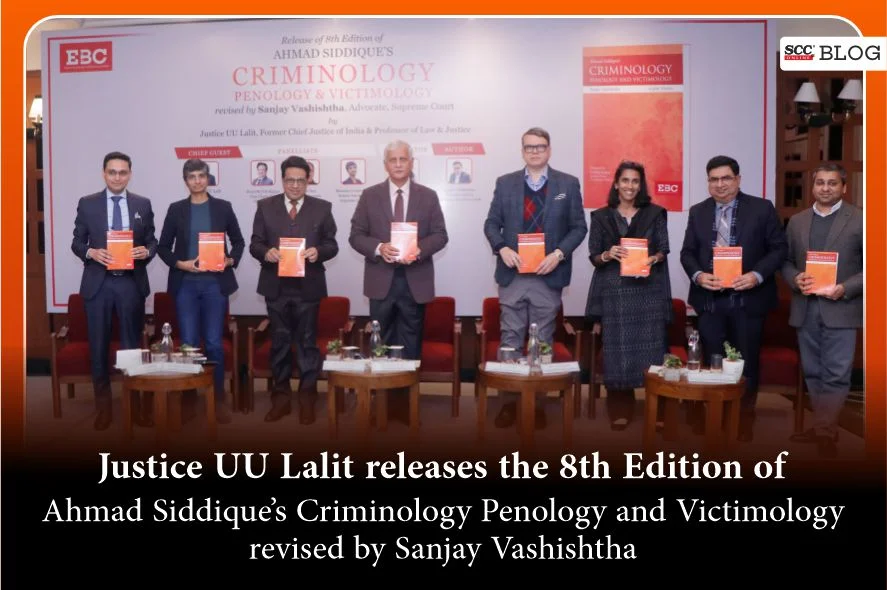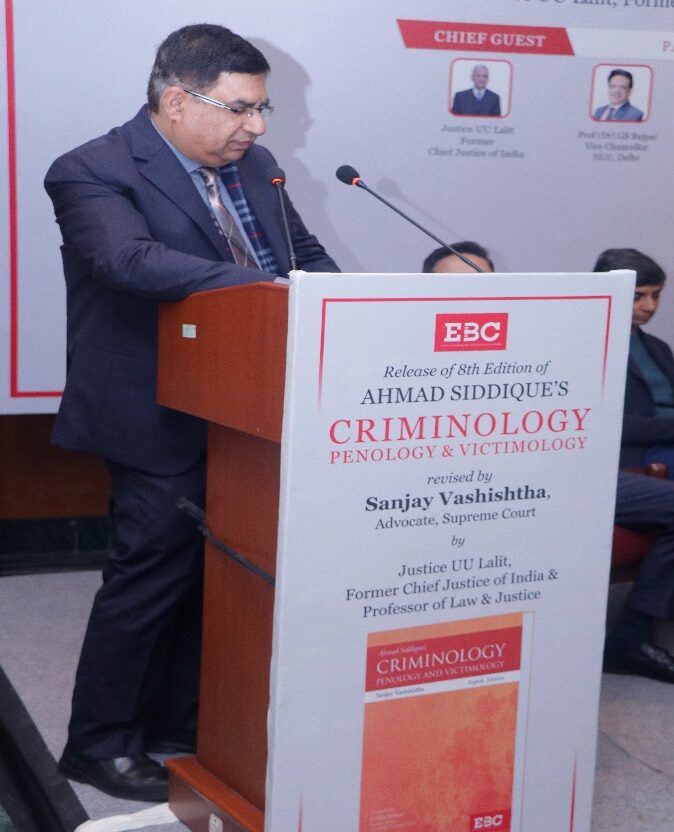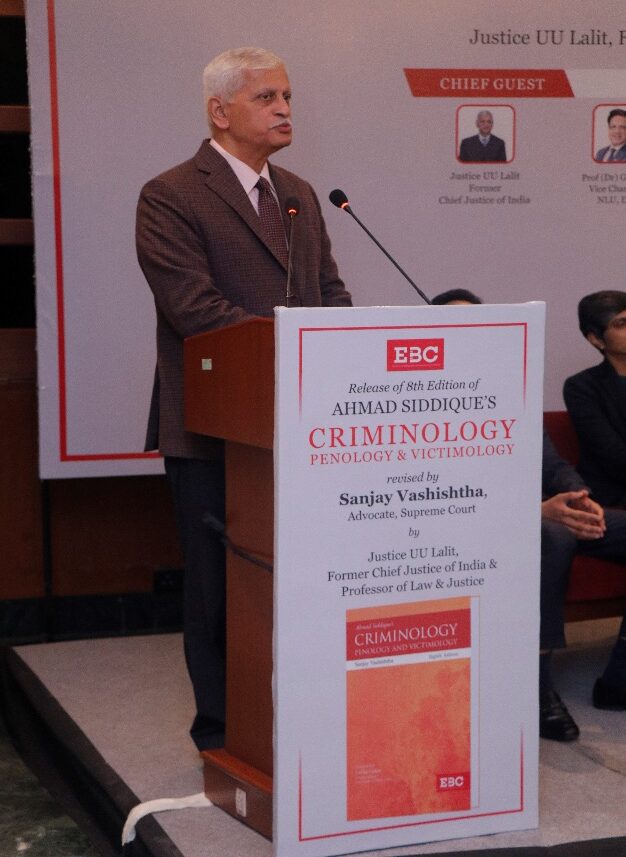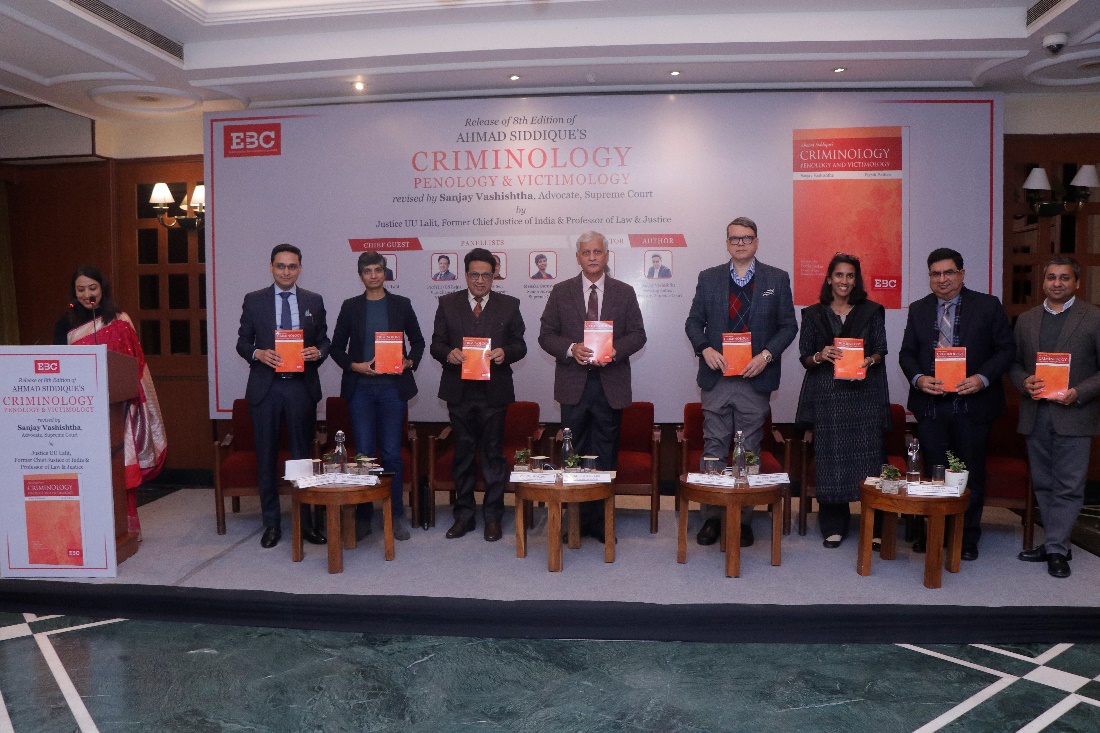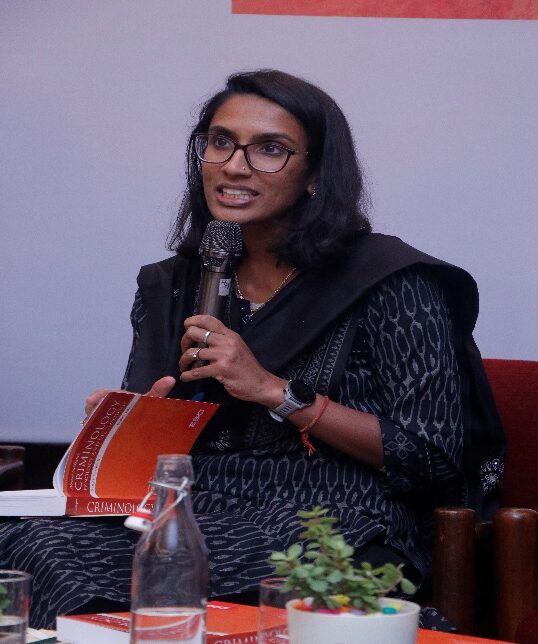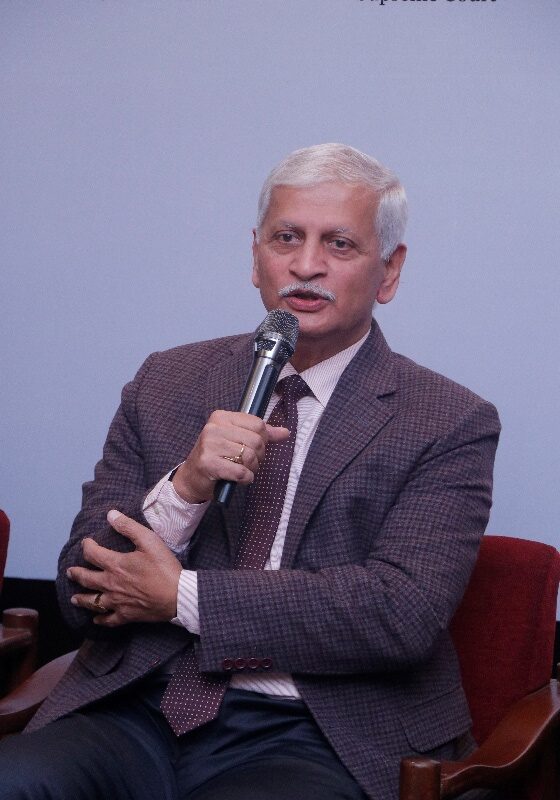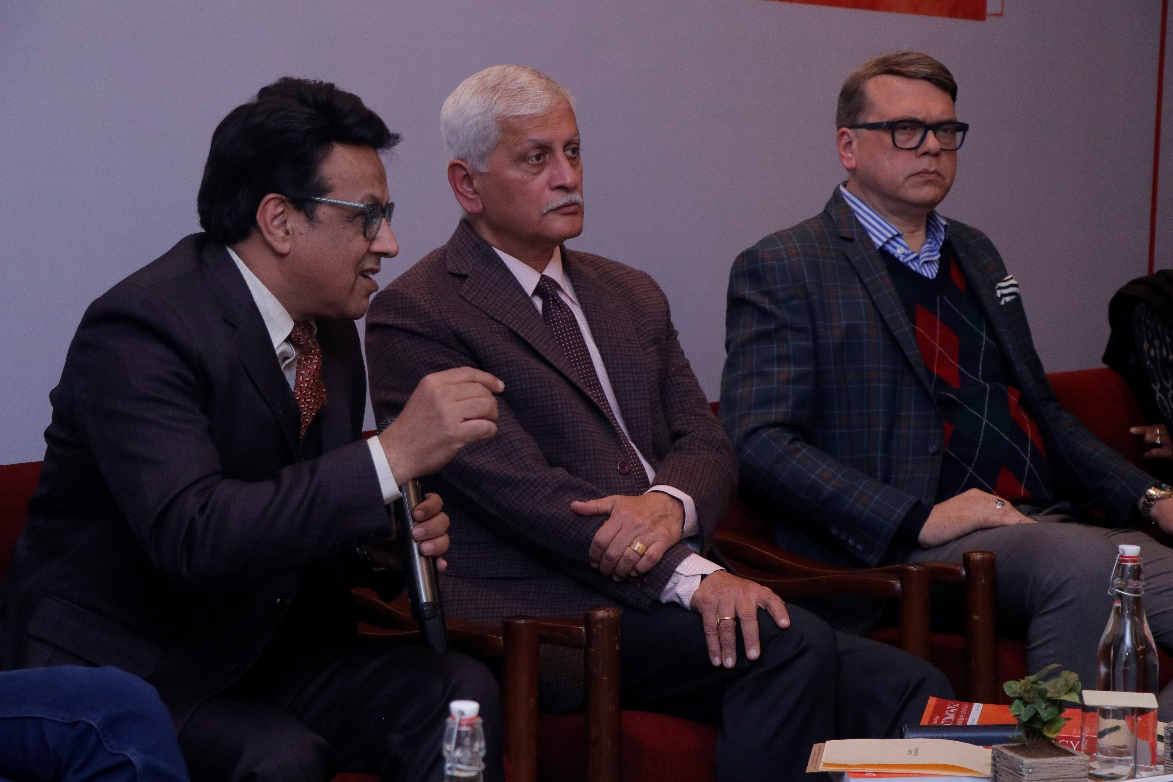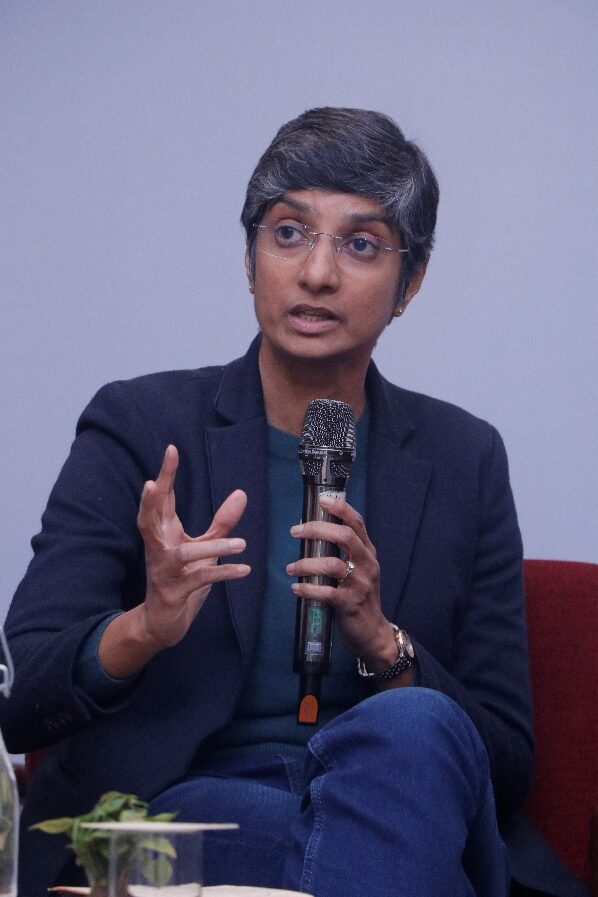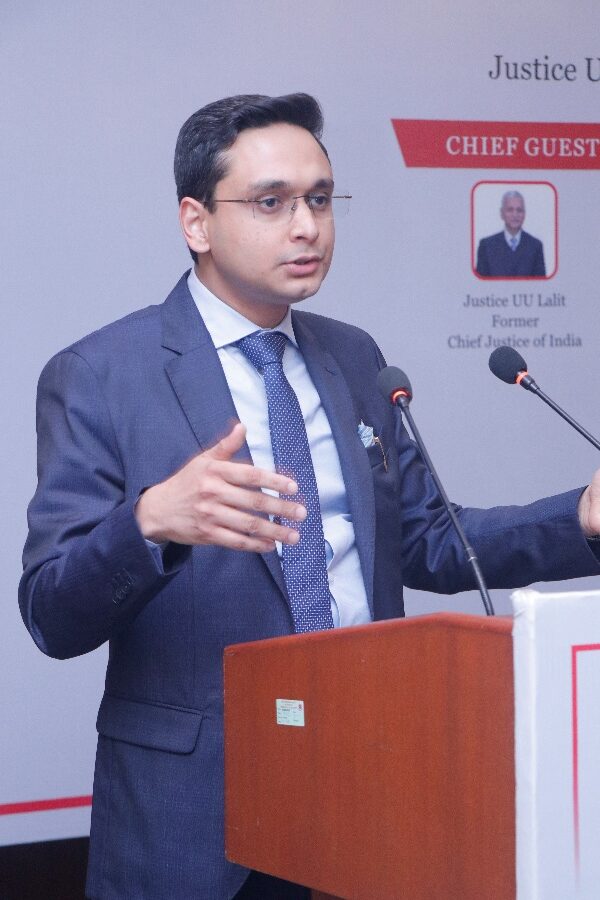Eastern Book Company released the 8th edition of Ahmad Siddique’s book “Criminology, Penology and Victimology” revised by Advocate Sanjay Vashishtha. The event witnessed some esteemed guests from the legal fraternity.
The event started with the opening speech by Sumeet Malik, Associate Editor, Supreme Court Cases, he said that “criminology as a subject is often not given importance. Talking about EBC’s association with Ahmad Siddique, he said “EBC’s association with Ahmad Siddique is for over 50 years”.
He further emphasised that in this new world of technology and Artificial Intelligence which helps publishing, even self-publishing, EBC is the trustees of the legacy of the Authors.
Thereafter, he remarked that “by getting Ahmad Siddique’s book published, we aim to keep his legacy alive”
Talking about the book, Justice UU Lalit, Former Chief Justice of India mentioned that “the subject criminology is subdivided under penology and victimology, it relates to everyone associated with criminal arena”
He also said that the approach of the Supreme Court is towards the rights of the victims. He further pronounced that “we do not associate with the theory of an eye for an eye”.
He suggested that “the norm should be life sentence and death sentence should be in rarest of rare cases”.
He noted that there have been such cases especially in 70s and early 80s, where the accused was given sentence of fine for Culpable Homicide.
He recommended that “in our sentencing jurisprudence we need to have better clarity without having any ambiguity at any juncture”.
Book Release
Panel Discussion
The event followed by an insightful and thought-provoking panel discussion on the topic “Contemporary Sentencing Trends in Criminal Law”.
Vrinda Bhandari, Advocate on Record, Supreme Court of India moderated the panel discussion.
She started the panel discussion by urging that “I would encourage everybody to get their hands on the book, it’s amazing”.
On the question of his experience as a’ criminal lawyer and a Judge, Justice UU Lalit, Former Chief Justice of India voiced that as a lawyer you put across a point and then leave it to the Court. The lawyers are always in the background. The contribution of a judge is different. As a judge, you have to see both the sides”
He remarked that “a mind of a judge helps in easing the pressure in the system.”
He also emphasised the sensitizing of the judiciary at the lower level as it is the first interface dealing with matters.
On the question regarding his view on sentencing trends in India, Prof (Dr) GS Bajpai, Vice Chancellor, NLU, Delhi said that “when I contrast criminology with criminal law, I see that criminology frees you. The contribution of criminology of sentencing is very much”.
He added that “criminal law could not so far absorb this kind of environment.”
He mentioned that “in India the biggest problem in sentencing is that, we do not institutionalize sentencing.”
He suggested a framework is needed, and there must be a provision dealing with the mechanism of sentence hearing. Instead of the same day conviction and same day sentence hearing, sometime should be given to the judges.
Contrasting Criminal law with criminology, he said that “criminal law provides very limited lenses to view criminal behavior, whereas criminological insights can be more useful.”
He added that “criminal law should be the last resort. It is a pain delivery mechanism.”
He also remarked that “criminal law is no longer restorative.”
Talking about the book, he stated that “the insights of this book will help us to expand our knowledge on criminal law.”
On the question regarding trends in sentencing, Sanjiv Sen, Senior Advocate, Supreme Court of India, said that “the aspects of punishment concerns him”
He discussed various punishments and a new punishment of ‘community service’ added by the new criminal law Bharatiya Nyaya Sanhita, 2023.
He talked about the arbitrariness of punishments in different States. He said that “there should be better guidelines both by the legislature and judiciary on the aspects of sentencing”
He remarked that “the new law which has come is overall following the trends of the earlier law as far as the sentencing is concerned.”
Talking about the book, he said that “the revision of this book is one of a kind. I think everyone will benefit from this book.”
On Perspective on the role of AI and how it could help judiciary, Menaka Guruswamy, Senior Advocate, Supreme Court of India commented that “Artificial Intelligence is being used to adjudicate issues like parole, termination decisions. Law firms in the west are hiring way less than they used to. AI is replacing humans.”
She concluded by stating that “there is not a grid on how you decide. Who gets bail is as much about who gives bail. I am averse to the idea of individualizing criminal law.”
Sharing the biggest learning from the revision of this book, Sanjay Vashishtha (Revising Author) Advocate, Supreme Court clarified that “this book is not limited to the notions of criminology, it is for the reader to experience the world of criminology. The focus is on Indian criminology / Southern criminology.”
The event concluded as Nilufer Bhateja, Associate Editor, EBC Publishing Pvt. Ltd. thanked the esteemed guests for the evening.


